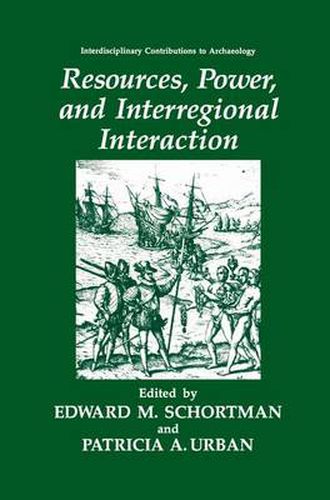Readings Newsletter
Become a Readings Member to make your shopping experience even easier.
Sign in or sign up for free!
You’re not far away from qualifying for FREE standard shipping within Australia
You’ve qualified for FREE standard shipping within Australia
The cart is loading…






This title is printed to order. This book may have been self-published. If so, we cannot guarantee the quality of the content. In the main most books will have gone through the editing process however some may not. We therefore suggest that you be aware of this before ordering this book. If in doubt check either the author or publisher’s details as we are unable to accept any returns unless they are faulty. Please contact us if you have any questions.
Archaeological research on interregional interaction processes has recently reasserted itself after a long hiatus following the eclipse of diffusion studies. This rebirth was marked not only by a sudden increase in publications that were focused on interac tion questions, but also by a diversity of perspectives on past contacts. To perdurable interests in warfare were added trade studies by the late 196Os. These viewpoints, in turn, were rapidly joined in the late 1970s by a wide range of intellectual schemes stimulated by developments in French Marxism (referred to in various ways; termed political ideology here) and sociology (Immanuel Wallerstein’s world-systems model). Researchers ascribing to the aforementioned intellectual frameworks were united in their dissatisfaction with attempts to explain sociopolitical change that treated in dividual cultures or societies as isolated entities. Only by reconstructing the complex intersocietal networks in which polities were integrated-the natures of these ties, who mediated the connections, and the political, economic, and ideological significance of the goods and ideas that moved along them-could adequate ex planations of sociopolitical shifts be formulated. Archaeologists seemed to be re discovering in the late twentieth century the importance of interregional contacts in processes of sociopolitical change. The diversity of perspectives that resulted seemed to be symptomatic of both an uncertainty of how best to approach this topic and the importance archaeologists attributed to it.
$9.00 standard shipping within Australia
FREE standard shipping within Australia for orders over $100.00
Express & International shipping calculated at checkout
This title is printed to order. This book may have been self-published. If so, we cannot guarantee the quality of the content. In the main most books will have gone through the editing process however some may not. We therefore suggest that you be aware of this before ordering this book. If in doubt check either the author or publisher’s details as we are unable to accept any returns unless they are faulty. Please contact us if you have any questions.
Archaeological research on interregional interaction processes has recently reasserted itself after a long hiatus following the eclipse of diffusion studies. This rebirth was marked not only by a sudden increase in publications that were focused on interac tion questions, but also by a diversity of perspectives on past contacts. To perdurable interests in warfare were added trade studies by the late 196Os. These viewpoints, in turn, were rapidly joined in the late 1970s by a wide range of intellectual schemes stimulated by developments in French Marxism (referred to in various ways; termed political ideology here) and sociology (Immanuel Wallerstein’s world-systems model). Researchers ascribing to the aforementioned intellectual frameworks were united in their dissatisfaction with attempts to explain sociopolitical change that treated in dividual cultures or societies as isolated entities. Only by reconstructing the complex intersocietal networks in which polities were integrated-the natures of these ties, who mediated the connections, and the political, economic, and ideological significance of the goods and ideas that moved along them-could adequate ex planations of sociopolitical shifts be formulated. Archaeologists seemed to be re discovering in the late twentieth century the importance of interregional contacts in processes of sociopolitical change. The diversity of perspectives that resulted seemed to be symptomatic of both an uncertainty of how best to approach this topic and the importance archaeologists attributed to it.